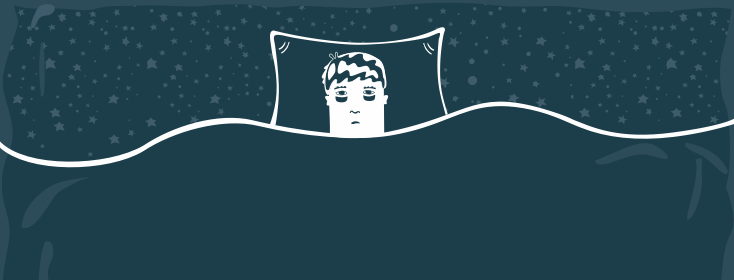Tossing and Turning! How Psoriasis Can Impact Sleep
Getting into bed at the end of an exhausting day should be a relaxing and welcoming event. For those who live with psoriasis, it can be a dreaded battle. After finishing a nighttime moisturizing routine and snuggling into your cotton sheets, finally being able to relax can be a difficult task. See, when the body starts to relax, the itch can intensify.
Lack of quality sleep can also contribute to the extreme fatigue that many of those with psoriasis experience. There are a few basic tips to improve fatigue, including gentle exercise for at least 15 minutes a day and following a healthier lifestyle - including limited alcohol and smoking. Chronic fatigue can also be contributed to a side effect of the autoimmune response.
What is causing all the sleep trouble?
All of that said, not much research has been done to exactly describe the relationship between psoriasis and sleep trouble, however, a lot of information points towards several factors that may be keeping you up at night.
Whether you’re having trouble falling asleep, staying asleep, or both, your troubles could be related to these common issues.
Itching and pain
Pruritus is the medical name for excessive itching or scratching that most frequently accompanies psoriasis. While it may be frustrating to deal with during the daytime, it can be even worse at night, and prevent you from falling asleep.
When your mind is focused on how itchy you are, it can’t quiet itself down enough to let you get the rest you need. Additionally, when you are in the lighter stages of sleep, your body may be more prone to trying to scratch, leading to limb movements that wake you up, even once you have drifted off.
This same phenomenon also comes along with pain perception, something very familiar to those with painful psoriasis lesions or joint pain from psoriatic arthritis.
Depression and other mental health conditions
The emotional toll of psoriasis is often overlooked and not always taken seriously. While experts aren’t certain if one definitively causes the other, or if these conditions can exist independently in the same individual, a cycle where one condition can exacerbate the other is known to be at play.
If you have psoriasis that has taken a toll on your emotional health and self-esteem (as it does for many!), you may develop psychological conditions like depression, which can affect your ability to get good rest. Thoughts can keep you up at night and if your body can’t reach the deeper stages of sleep, you are more prone to wake yourself up with itching or perceiving pain.
Also, with mental health conditions, as well as with a decrease in sleep, comes a decreased pain or discomfort tolerance. This can further lead to a cycle of scratching, a stronger feeling of pain, and a lot less sleep.
Obstructive sleep apnea
More research needs to be conducted in this category, just like the others, however, there is a growing body of research that supports the idea that those with psoriasis, like those with other inflammatory conditions such as rheumatoid arthritis, are more prone to developing obstructive sleep apnea.
Chronic inflammation may be the common factor responsible for the relationship between psoriasis and sleep apnea1. People with sleep apnea have increased levels of certain pro-inflammatory proteins, called cytokines. T
hese same cytokines, which are part of the immune system response, are also increased in people with psoriasis and psoriatic arthritis.
This condition on its own can decrease slow-wave sleep, lead to periods of hypoxia (or lack of oxygen), and ultimately, lead to more disturbances during the night. As with the pain and depression, more disturbances open the doorway for more pain, itchiness, and overall discomfort, preventing you from getting back to sleep.
Get yourself some sleep support
It’s no surprise that many people with psoriasis report having sleep difficulties and ultimately fatigue. Social isolation that many people with psoriasis feel may actually contribute to sleeplessness due to lack of interaction and stimulation that may make your brain more tired and want to sleep.
Talking with online communities, friends, and healthcare providers may help you figure out what specifically is keeping you up at night.
By figuring out what is preventing you from getting good rest (or at least trying too!), you can begin the treatment journey to getting a good night’s sleep!

Join the conversation